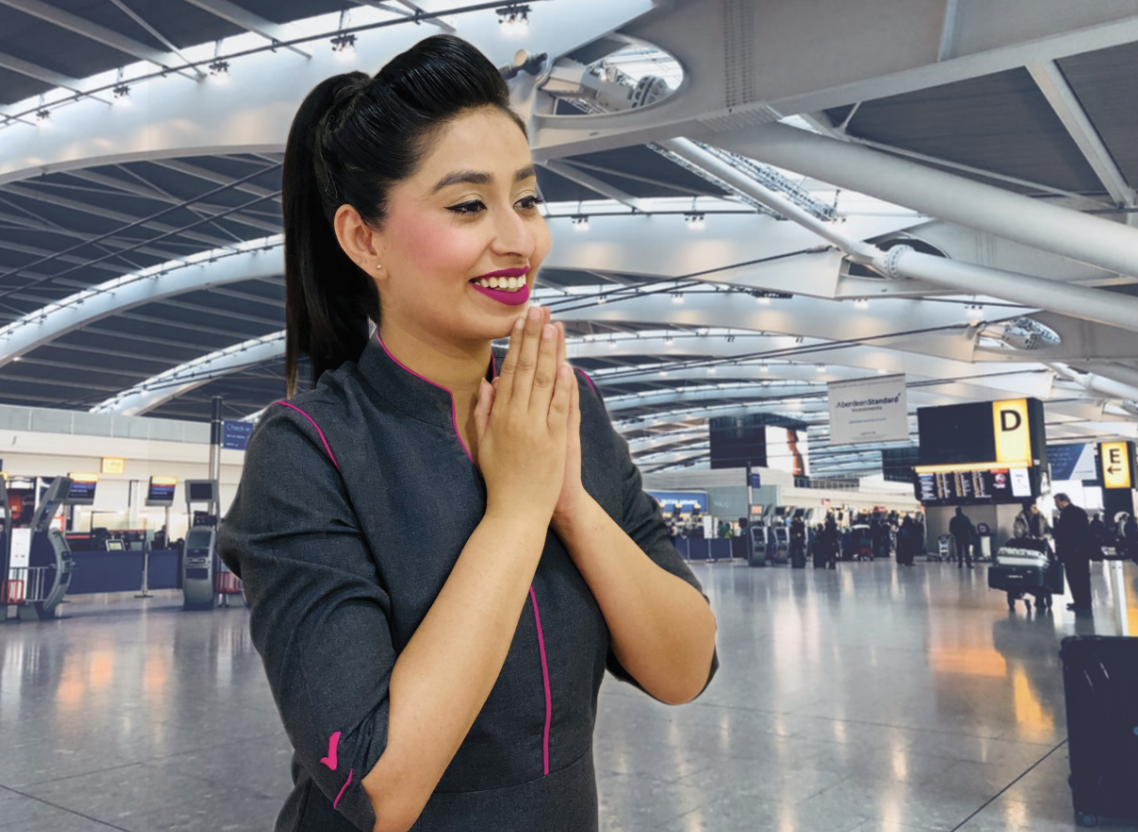New Indian airline Flybig may just be the next small idea

Big smile: promotional picture for new Indian airline, Flybig
(Flybig)You don't need me to tell you that this is the worst crisis in modern aviation history – a disastrous time to be an employee of, or an investor in, airlines. That’s certainly case in the UK, with very little government support and a near-complete collapse in traffic.
Restrictions on travel are getting tighter, with many coronavirus measures aimed squarely at the British and our annoying Covid variant. People flying to the UK must now get a negative test for the virus before flying. And the government has given no sign of when restrictions may loosen, making it extremely difficult for any of us to commit to future travel.
Yet perhaps this is an excellent time to start a new airline.
Consider the elements that are involved. Aircraft values are lower than they have been since the 20th century. Airlines have far too many planes for the number of passengers they expect to carry, and are keeping large parts of their fleets on the ground.
The companies that own the aircraft – very often separate leasing firms – are seeing more and more planes returned after carriers collapse. Given that it costs a small fortune simply to keep an aircraft on the ground, anyone who is actually in the market for acquiring new planes can be sure of a good deal.
Then there is the crew. Sadly tens of thousands of great airline professionals have lost their jobs in the past 10 months since the coronavirus crisis began. Previously there was talk of a shortage of pilots; today, gallows humour has taken over, as in this tweet:
“Had a decorator in today. Got chatting to him and it turns out he’s a BA pilot, on furlough.
“Must say, he made a lovely job of the landing.”
Any new airline will be able to recruit staff on far better terms than existing carriers.
Slots at once-busy airports are much easier to procure. Even if you can’t pick up the precious permission to land or take off at Gatwick or Heathrow for nothing, carriers keen to convert their rights into cash will be prepared to offer a good price.
All the other elements, from ground handling to maintenance to marketing, will be negotiable at previously implausible prices.
The problem is passengers and their propensity to travel, which in turn depends on the level and complexity of travel barriers; the financial health of prospective customers; and concerns over the virus among individuals.
But some people clearly feel fortune favours the brave. Last week a new Indian airline took off. Flybig, as it is uncomfortably named, is easy to mock: it has one small plane. But its business model looks as though it might have legs: connecting second-tier cities that have rubbish rail links.
Since 3 January it has shuttled between Indore to Ahmedabad and back, taking an hour each way for the 200-mile hop.
Conventional wisdom would conclude that as a standalone, point-to-point flight, as opposed to a feeder for onward connections, this would not be a viable route. Indian Railways offers outstanding value.
But the fastest train that I can find from Indore (population 2 million) to Ahmedabad (5 million-plus) takes seven hours; most are 10 hours or so. A test booking I made for the following day’s flight came in at £24.
Flybig needs only a minuscule proportion of the combined population to think that is a good time/money trade-off for the venture to succeed.
The plane is a 10-year-old ATR 72: slow and uncomfortable in my experience. But it is a former Virgin Australia aircraft, very much surplus to requirements in that much-downsized carrier.
Flybig may have found a niche, though not a large one.
Read More
What will travel be like, post Brexit?
Covid testing before travel to the UK: the key questions and answers
Ryanair boss demands ‘test before travel’ scheme ends in February


